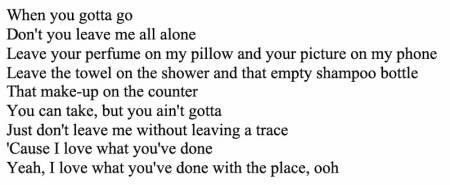From the Raw Story site, “‘The stain is on you’: Ex-RNC chair slams GOP for silence on [GP]’s call for blood purity” by Matthew Chapman on 12/18/23 (in this story [GP] refers to (Helmet) Grabpussy), beginning:
The Republican Party at large owns former President [GP]’s increasing descent into fascistic and racist rhetoric, former GOP chair Michael Steele told MSNBC’s Katie Phang [sitting in for the host of “The Beat With Ari Melber”] on Monday.
This comes as [GP] stated at a rally that immigrants are “poisoning the blood of our country,” language that has clear roots in Nazi Germany — and Sen. Lindsey Graham (R-SC) defended it furiously when cornered by reporters.
“Michael, it is not just [GP] that’s doing the bad thing, it’s the enablers that are doing the bad thing,” said Phang. “We all know why they are kissing the proverbial you know what. And, when you have somebody like Marc Short [Republican operative, chief of staff to Vice President Mike Pence] saying ‘I doubt that [GP] has read Mein Kampf,’ I don’t disagree with him, I don’t think he has the capacity to read, but it is not the point. These people enable [GP] to be able to say this with zero consequence.”
In the crucial quote, boldfaced above, Phang was choosing between two idioms, both of the form kiss + object, both expressing submission to someone: the elevated idiom (with the C[ount] Sg object noun ring):
kiss someone’s ring or: kiss the ring
and the vulgar slang idiom (with the M[ass] Sg object noun ass):
kiss someone’s ass or: kiss ass
In any case, Phang chose to indicate that she was using a formulaic expression, via the formula-signaling adjective proverbial modifying the head noun of the object. She said kiss the proverbial X and not kiss proverbial X, and that would seem to indicate that she was using the elevated idiom (with ring), which comes with a definite article, and not the vulgar idiom (with ass), which is anarthrous: kiss the ring, kiss the proverbial ring; kiss ass, kiss proverbial ass.
But we can feel pretty sure that she was aiming for the vulgar idiom, because she also used a scheme for avoiding taboo words (like ass ‘buttocks’ or ‘anus’): the filler you know what replacing the taboo item (I’m not going to kiss (his) you know what, He told me to stick it up my you know what).
The result is that at first glance she just looks confused, mixing features of the two competitors for a submission idiom. But it turns out that the syntax of formula-signaling proverbial is more complex than I had thought, and she was saying exactly what she intended.
(more…)




